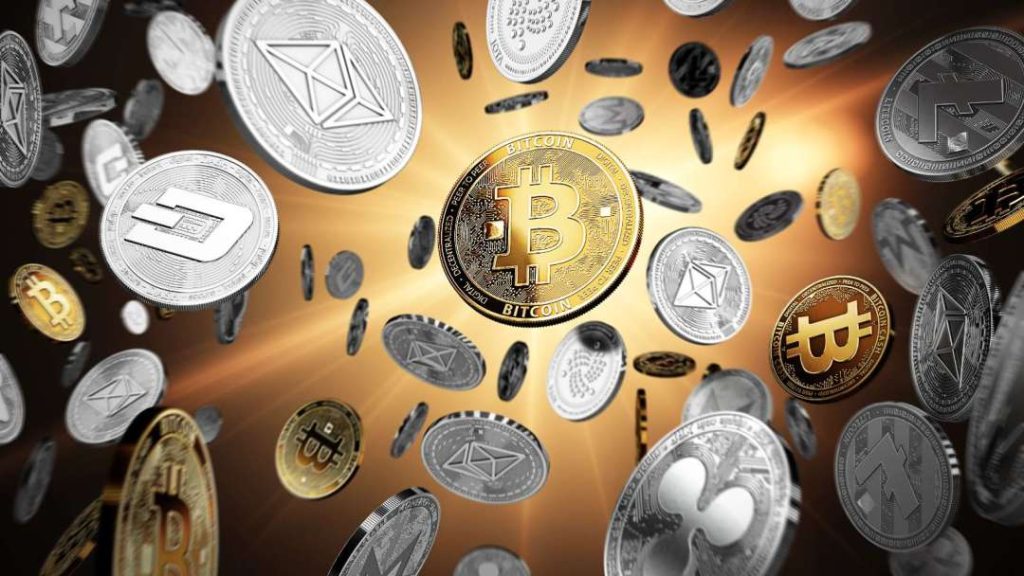The rapid growth and evolution of blockchain technology and cryptocurrencies have led governments and regulatory bodies worldwide to adopt varying stances on how to regulate these emerging technologies. While some countries embrace blockchain and crypto assets as a cornerstone for innovation, others are more cautious, viewing them as a potential threat to financial stability or national security. These regulatory differences create a complex global landscape for businesses and investors seeking to navigate the crypto ecosystem.
In this article, we will explore the regulatory differences across key countries and regions, comparing how each addresses blockchain technology and cryptocurrency assets. From progressive regulatory frameworks to stringent restrictions, these disparities can significantly impact the development, adoption, and use of blockchain and crypto assets worldwide.
1. United States: A Fragmented Approach
Regulatory Overview
In the United States, the regulatory environment for blockchain and cryptocurrency assets is somewhat fragmented, with multiple federal and state agencies taking different stances on how to approach these technologies. The lack of a clear, unified regulatory framework has led to uncertainty for companies and investors in the blockchain space.
Key Agencies Involved:
- Securities and Exchange Commission (SEC): The SEC treats many cryptocurrencies and Initial Coin Offerings (ICOs) as securities under U.S. law, subjecting them to existing securities regulations. This stance has led to a number of high-profile cases against crypto companies for conducting unregistered securities offerings. The SEC has also scrutinized the use of blockchain technology in the financial sector.
- Commodity Futures Trading Commission (CFTC): The CFTC has classified Bitcoin and other major cryptocurrencies as commodities, not securities. This provides some flexibility for crypto futures trading but has created confusion about how other assets should be treated.
- Financial Crimes Enforcement Network (FinCEN): FinCEN oversees anti-money laundering (AML) and know your customer (KYC) regulations for cryptocurrency exchanges. These regulations are designed to prevent illicit activity, such as money laundering and fraud.
- State Regulations: States like New York have implemented their own regulatory frameworks, such as the BitLicense, which requires cryptocurrency businesses to obtain a license to operate in the state. Other states, such as Wyoming, have taken a more crypto-friendly approach, introducing legislation to make the state a hub for blockchain innovation.
Challenges in the U.S. Regulatory Environment:
- Lack of Clear Guidance: With multiple agencies involved, there is a lack of clarity on which agency has ultimate jurisdiction over different aspects of cryptocurrency. This has led to legal uncertainty.
- Regulatory Fragmentation: The regulatory burden can differ from state to state, with some states having comprehensive frameworks while others have none at all.
2. European Union: Harmonization in Progress
Regulatory Overview
The European Union (EU) is taking steps toward harmonizing its approach to blockchain and crypto asset regulation, aiming to create a common regulatory framework that ensures consumer protection and financial stability across member states.
The EU’s approach is more standardized than the fragmented U.S. system, but it is still evolving.
Key Regulations:
- Markets in Crypto-Assets (MiCA) Regulation: The EU is working on the MiCA regulation, which is designed to provide a clear framework for the regulation of crypto assets. It will regulate stablecoins, crypto exchanges, and other crypto-related activities. The goal of MiCA is to create a unified market for crypto assets while ensuring consumer protection, market integrity, and financial stability.
- Anti-Money Laundering (AML) and Know-Your-Customer (KYC): The EU has adopted a rigorous approach to combating money laundering in the crypto space. Under the Fifth Anti-Money Laundering Directive (5AMLD), cryptocurrency exchanges are required to comply with strict KYC and AML regulations. This includes reporting suspicious transactions and customer identification.
- EU Blockchain Strategy: The European Commission has outlined a blockchain strategy to enhance the EU’s technological capabilities. This strategy includes supporting research into blockchain’s potential applications in various sectors, such as finance, health, and public services.
Challenges in the EU:
- Varying National Regulations: While MiCA aims to harmonize regulations across the EU, some countries have taken divergent approaches, creating some inconsistencies in implementation.
- Regulation of Decentralized Finance (DeFi): As decentralized finance platforms grow, the EU faces challenges in regulating these platforms, which operate without a central authority.
3. China: A Stringent and Restrictive Approach
Regulatory Overview
China has taken a strict stance against cryptocurrencies, imposing severe restrictions on both crypto trading and mining activities. The government has expressed concerns about financial stability, capital flight, and illegal activities related to crypto.
Key Regulations:
- Ban on Crypto Trading: The People’s Bank of China (PBoC) has banned all forms of crypto trading, including ICOs and crypto exchanges, since 2017. Chinese authorities have also cracked down on the use of foreign crypto exchanges and attempted to prevent citizens from trading cryptocurrencies through VPNs.
- Ban on Mining: In 2021, China escalated its crackdown on cryptocurrency mining, shutting down mining operations across the country. The government cited concerns about energy consumption, financial risks, and environmental issues.
- Central Bank Digital Currency (CBDC): Despite its ban on cryptocurrencies, China is actively developing a Central Bank Digital Currency (CBDC), known as the Digital Yuan. This state-controlled digital currency is expected to have significant implications for the global financial system.
Challenges in China:
- Cryptocurrency Mining Exodus: China’s ban on mining has led to an exodus of miners, with many migrating to other countries with more favorable regulatory environments.
- Innovation and Centralization: While China has stifled the growth of decentralized cryptocurrencies, its efforts to launch a CBDC show its interest in leveraging blockchain technology for centralized control.
4. Japan: A Progressive Regulatory Approach
Regulatory Overview
Japan has adopted one of the most progressive regulatory stances on blockchain and cryptocurrency. It was one of the first countries to officially recognize cryptocurrencies as legal tender, and it has established a robust regulatory framework to ensure the safe use of crypto assets.
Key Regulations:
- The Payment Services Act (PSA): In 2017, Japan revised its Payment Services Act to recognize Bitcoin and other cryptocurrencies as legal tender for payments. This act requires cryptocurrency exchanges to register with Japan’s Financial Services Agency (FSA) and comply with KYC and AML regulations.
- Crypto Exchange Regulations: Japanese crypto exchanges are required to adhere to strict guidelines, including conducting internal audits, maintaining security reserves, and providing transparency for users. This regulation is designed to protect consumers from hacking incidents, such as the famous Mt. Gox hack in 2014.
- Taxation of Cryptocurrencies: Japan taxes crypto assets as miscellaneous income, meaning that individuals who make a profit from trading cryptocurrencies are required to pay taxes on those profits. Japan has also introduced tax exemptions for cryptocurrency-related businesses.
Challenges in Japan:
- Taxation Complexity: The tax treatment of cryptocurrencies remains complex, especially for businesses that deal with large volumes of crypto transactions.
- Regulatory Overlap: Japan’s regulatory environment, while progressive, can be complex, especially as new developments in blockchain technology emerge.

5. India: Regulatory Uncertainty with Growing Interest
Regulatory Overview
India’s approach to blockchain and crypto assets has been somewhat ambiguous over the years. The Indian government has oscillated between banning and regulating cryptocurrencies. However, the growing popularity of blockchain technology has led to a more open attitude in recent years.
Key Regulations and Developments:
- Supreme Court Ruling: In 2020, the Indian Supreme Court overturned a banking ban imposed by the Reserve Bank of India (RBI) on cryptocurrency transactions, allowing crypto trading to resume. This ruling provided hope to the crypto industry in India, but regulatory uncertainty remains.
- Proposed Cryptocurrency Ban: The Indian government has proposed a cryptocurrency ban in the past, aiming to create a Central Bank Digital Currency (CBDC). The proposal includes a ban on private cryptocurrencies like Bitcoin, with the aim of protecting investors and curbing illegal activities.
- Draft Legislation for Crypto: The Indian government is working on a comprehensive cryptocurrency bill, which is still under review. The bill aims to regulate crypto exchanges, ICOs, and digital assets while promoting blockchain innovation.
Challenges in India:
- Regulatory Ambiguity: The lack of clear regulation has left the crypto industry in India in a state of uncertainty, with businesses unsure of how to proceed.
- Government’s Reluctance: The government’s hesitation to fully embrace cryptocurrencies and its focus on launching a CBDC has created a divided sentiment in the industry.
Conclusion
The regulatory environment for blockchain and cryptocurrency varies greatly across different countries. While some nations, such as Japan and the European Union, have embraced blockchain with clear regulatory frameworks, others like China and India remain cautious or restrictive, citing concerns about security, financial stability, and illegal activities.
As the global landscape continues to evolve, it is likely that we will see more countries implement tailored regulations to balance innovation with risk management. For businesses and investors, understanding these regulatory differences is critical for navigating the complexities of the blockchain ecosystem and ensuring compliance with local laws.













































